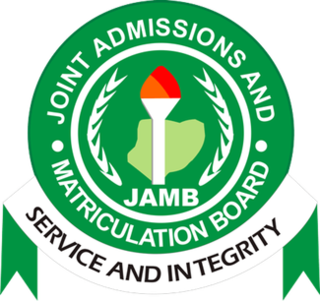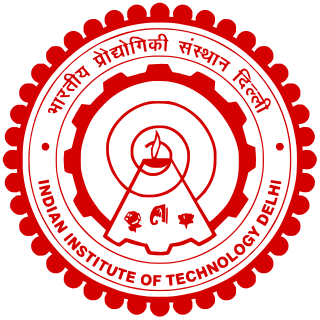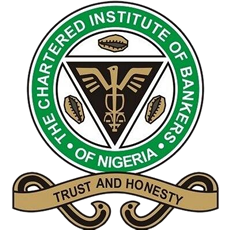
A royal charter is a formal grant issued by a monarch under royal prerogative as letters patent. Historically, they have been used to promulgate public laws, the most famous example being the English Magna Carta of 1215, but since the 14th century have only been used in place of private acts to grant a right or power to an individual or a body corporate. They were, and are still, used to establish significant organisations such as boroughs, universities and learned societies.
The City and Guilds of London Institute is an educational organisation in the United Kingdom. Founded on 11 November 1878 by the City of London and 16 livery companies – to develop a national system of technical education, the Institute has been operating under Royal Charter (RC117), granted by Queen Victoria, since 1900. The Prince of Wales, later King Edward VII, was appointed the first President of the Institute.

The Royal Institute of British Architects (RIBA) is a professional body for architects primarily in the United Kingdom, but also internationally, founded for the advancement of architecture under its royal charter granted in 1837, three supplemental charters and a new charter granted in 1971.

[Result]

Education in Nigeria is overseen by the Federal Ministry of Education. The local authorities which takes responsibility for implementing state controlled policy regarding public education and state schools. The education system is divided into Kindergarten, Primary education, Secondary education, and Tertiary education. Nigeria's federal government has been dominated by instability since declaring independence from Britain, and as a result, a unified set of education policies is yet to be successfully implemented. Regional differences in quality, curriculum, and funding characterize the education system in Nigeria. Currently, Nigeria possesses the largest population of out-of-school learning youths in the world. Education system in the South is different from the North. Most northerners have memorised the Holy Qur'an and use that as their education.The educational systems in Nigeria is divided in to two the public where student only pay for PTA while the private where student pay school fee and some other fees like sports, exam fee, computer fee etc and they are costly

The Joint Admissions and Matriculations Board (JAMB) is a Nigerian entrance examination board for tertiary-level institutions. The board conducts entrance Unified Tertiary Matriculation Examination for prospective undergraduates into Nigerian universities. The board is also charged with the responsibility to administer similar examinations for applicants to Nigerian public and private monotechnics, polytechnics, and colleges of educations. All of these candidates must have obtained the West Africa School Certificate, now West African Examinations Council, WAEC, or its equivalent, National Examination Council (Nigeria), NECO.
The Federal Ministry of Education is a part of the Federal Ministries of Nigeria that directs education in Nigeria. It is located at Block 5A, Federal Secretariat Complex, Shehu Shagari Way, Central Area, P.M.B. 146, Garki, Abuja.

Te Eulogio "Amang" Rodriguez Institute of Science and Technology is a public college in Santa Mesa, Manila in the Philippines. It was named after Eulogio Rodriguez, one of the longest serving senators in the country.

Indian Institute of Technology Delhi is a public technical university located in Hauz Khas in South Delhi, Delhi, India. It is one of the oldest Indian Institutes of Technology in India.
Under an Act passed by the UK Parliament in 1931, there was established an Architects' Registration Council of the United Kingdom (ARCUK), referred to in the Act as "the Council". The constitution of the Council was prescribed by the First Schedule to the Act. The Act made the Council a body corporate by the name Architects' Registration Council of the United Kingdom. It was habitually referred to colloquially by the acronym ARCUK.
After nearly a century of endeavour and negotiation which had been led by the Royal Institute of British Architects, a statutory Board of Architectural Education was formed under the Architects (Registration) Act, 1931. For the purposes of constituting the Board of Architectural Education the Act included a list of Schools of Architecture in the United Kingdom. The statutory Board was abolished in the 1990s, and when the Architects Act 1997 repealed the 1931 Act the statutory list of Schools of Architecture went with it.
The Federal Ministry of Budget and National Planning is one of the Federal Ministries of Nigeria.

The Catanduanes State University (CatSU) is a research and coeducational higher education institution and a green university in Catanduanes, Philippines. It is an ISO 9001:2015 certified public university.

The Chartered Institute of Bankers of Nigeria (CIBN) is the umbrella professional body for bankers in Nigeria. The CIBN was incorporated in 1976 as the Nigerian Institute of Bankers. It was chartered in 1990, and is now covered by the CIBN Act 5 of 2007. The Institute is authorized to control entry into the banking profession, to set standards for bankers and to maintain professional ethics through sanctions of erring members. Corporate members include the Central Bank of Nigeria, the Nigeria Deposit Insurance Corporation and all Deposit Money Banks, Development Banks, Mortgage Banks, Micro Finance Banks and Discount Houses in Nigeria.
In the United Kingdom, the Architects Act 1997 imposes restrictions on the use of the name, style or title "architect" in connection with a business or a professional practice, and for that purpose requires a statutory Register of Architects to be maintained. The Architects Registration Board constituted under the Act is responsible for Architects Registration in the United Kingdom and is required to publish the current version of the Register annually. Every person who is entitled to be registered under the Act has the right to be entered in the Register. The Act consolidated previous enactments originating with the Architects (Registration) Act, 1931 as amended by the Architects Registration Act 1938. It applies to England, Wales, Scotland and Northern Ireland.
Takoradi Technical University is a public tertiary education institution (university) located in Sekondi-Takoradi, the capital of the Western Region of Ghana. Takoradi Technical University was established as a Government Technical Institute in 1954, and became part of the State Tertiary Education System. Later after the passage of the Polytechnic Law of 1992. It was replaced by Polytechnics Law in 2007. In 2016, the Bill to convert six out of the 10 polytechnics into a fully fledged university received a unanimous approval of Ghanaian legislators.

The National Examination Council is an examination body in Nigeria that conducts the Senior Secondary Certificate Examination and the General Certificate in Education in June/July and November/December respectively.

The history of Imperial College London can be traced back to the founding of the Royal College of Chemistry in 1845 in London, with some ancestral medical schools dating back to 1823. The college was formed in 1907 out of the Royal Colleges in South Kensington, and throughout the 20th century became central to the national strategy for technical education and research. It existed for most of its life as part of the University of London, only becoming independent in 2007.










